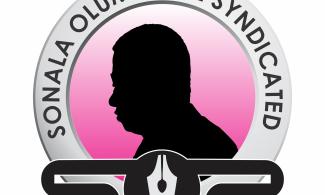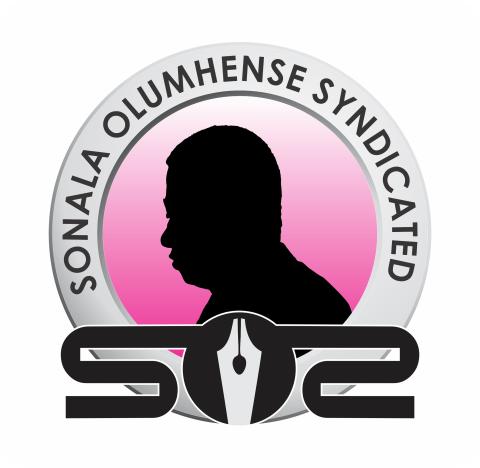
One mini-debate going on in Nigeria is whether President Goodluck Jonathan, who was defeated in the March presidential election, is a statesman because he conceded defeat.

Mr. Jonathan certainly deserves respect for that action. But a Nobel Peace Prize is not won because you put a bandage on someone who got hurt in a fistfight; not does a priest become a saint because he said Mass.
Had Mr. Jonathan chosen to remain in the presidential race that had ended after the electoral commission counted that final vote, the agency would have done its job and announced the victory of his opponent.
To put it another way: it would have announced in words louder than the numbers being seen and heard in real time around the world, the incumbent’s defeat.
In other words, the outgoing Nigerian leader did the right thing. It was not a favour to the electorate or to the principle of democracy. Would there have been violence? Perhaps, but that would not have corrected his squandered opportunities, or put him back in office.
In November 2014, Presidential Adviser Doyin Okupe, who had described Jonathan as being like Jesus Christ, declared that in terms of performance and achievements, no administration in Nigeria’s history “has done as much as that of President Jonathan.”
The voters graded Mr. Jonathan, and pronounced a loud and clear verdict. If statesmanship was his objective, he forgot to work for it.
A more relevant question is: what will Buhari’s legacy be?
It was the same question on the table for Mr. Jonathan when he became Acting President in 2010, and in 2011 when he was inaugurated for what he called his first term.
In a comment on February 14, 2010, after Mr. Jonathan became Acting President, I urged him to work as though he had only one month in charge. I argued that the temptation to proceed as though he had the luxury of a long presidency was presumptuous, partly because it was possible that Mr. Umaru Yar’Adua would return to office.
“If Jonathan is genuine, one month is enough to set the table for the transformation of Nigeria One month in which to make landmark decisions that Nigerians cannot resist or reject. One month in which to initiate, or implement key policies capable of transforming Nigeria. One month in which to demonstrate to Nigerians and the world that the heart that beats within Jonathan is as big as Nigeria, and not as limited as Jonathan.”
As we now know, for those 30 days, indeed for the five years that followed, he chose the presumptuous road. He failed to prove his heart was as big as his country. He understood neither the limitations of Time, nor of Power. His one earth-shaking decision in office was that election concession phone call.
To Buhari then, the spoils: What will his legacy be?
The illusion of longevity in power is the first of its many illusions. Yes, the Nigerian constitution says a presidential tenure is four years, and on May 29, many people will repeat it many times.
It is really untrue. The presidency lasts but one month, which will go so fast it will appear to be one day. That is why I say that what a serious Nigeria leader does not achieve on Inauguration Day is probably not going to be achieved in four. It is what you do, not what you say.
To Buhari falls the same challenge of understanding Time and Power. For him, things will be considerably faster because of the monumental expectations of the electorate which ensured his ascendancy to the throne.
Buhari, we know, will fight Nigeria’s enemies, including Boko Haram. But the nation’s enemies are also in very bowels of his own All Progressives Congress (APC). Anyone can fight their enemies; it takes uncommon commitment to persuade your friends.
He must learn to say, “Sorry friends, but I have to do this in the larger interest of all,” and then do it.
If they are real friends, and if they truly believe in change, they will support him. If not, he has to fight, anyway.
Buhari wants to right the wrongs in the power sector and light up Nigeria? Well, among others, that mess is sustained by a generator-importing cabal which spans both the APC and the PDP. Buhari must say, “Sorry, but I have to do this,” and do it. Quickly.
Buhari wants to fight corruption? APC is no less corrupt than the Peoples Democratic Party (PDP) it has defeated. Mercifully for Buhari, APC wants change. He should therefore commit the party, right away, to a robust but fair anti-corruption process. “Sorry, friends, but Nigerians sent us!”
Now that the same APC is in control of the federal legislature, Buhari can send a bill to the Senate on his first day proposing vast slashes to its horrendous wages and allowances. If APC is truly committed to change, it can prove that within that, within days, by passing that law. I do not see the PDP reacting by going to Eagle Square at lunch time to weep.
But perhaps the APC will be magnanimous and mighty of heart and say to the new President: “Go ahead, do what you must, and say sorry no more.”
What Buhari has to do is structure his administration in such a way that it has two moving parts, one of them focusing on correcting the atrocities and impunity of the past; and the other, on the challenge of development.
An approach of this nature will ensure that the administration steams purposefully ahead with the projects and programmes for which Nigerians are yearning, while a revived rule of law and the diligence of the other part unravels and redresses the past.
I do not hold the illusion that it is possible, or necessary, to cover every blade of grass of the past. I suggest:
Publishing a full report on the state of the economy; various former government officials have cried out about abominable practices in the current, with former Minister Oby Ezekwesili alleging that $67 billion left by the President Olusegun Obasanjo’s government had been squandered;
Investigating and auditing a few key Ministries, such as Defence, Finance, Petroleum and Works, to provide a quick and workable insight into the entire economy;
A revamping of the judiciary, and establishment of an anti-corruption component in it to speed up cases.
Implementing key governmental reports, some of which have been ignored for years, such as various corruption and oil sector reports;
Obtaining and publishing a full report of the Accountant General of the Federation disclosing details of the spending of recovered stolen public assets since 1999;
Determining what has happened to Nigeria’s spending on the Millennium Development Goals, including the $1 billion per-year we received in the 2006 debt deal with the Paris Club; and
Publishing the end-of-tenure assets declaration reports of elected officials.
There are many low-hanging fruits for Buhari, including revisiting and implementing the historic Justice Uwais Panel report on electoral reform in order to arrest the spectre of systematically-rigged elections.
APC means change? Prove it, today. Tomorrow may be too late.
[email protected]
Twitter: @SonalaOlumhense